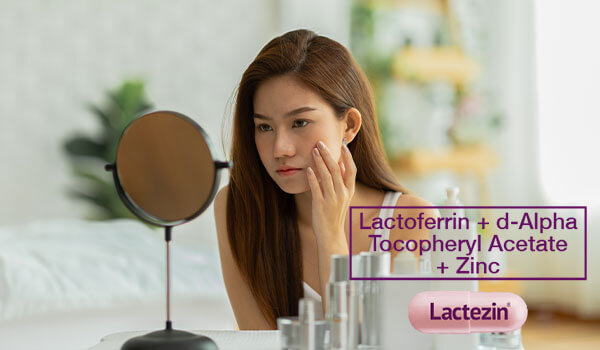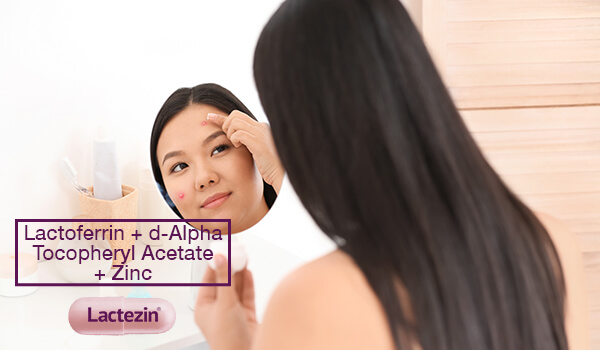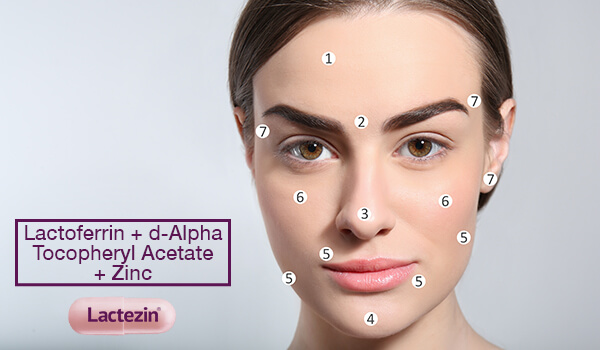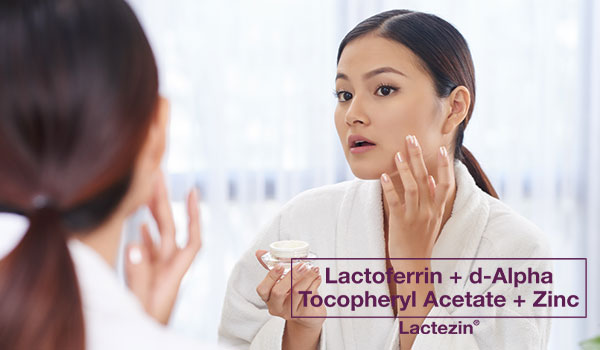9 Common Habits That Cause Acne

Let’s face it. Some days, pimples would just appear on your skin and you absolutely have no idea why breakouts are coming out. You sleep early, you use sunscreen, you wash your face. But the question is: how often do you change your pillowcases? What sunscreen do you use? And how often do you wash your face?
Truth be told: there are sneaky reasons and habits that are causing your skin breakouts. While you may not notice them because they have already been ingrained in your daily life, these habits can actually be the culprits. Read on and know what could actually be triggering your acne.
- Spraying perfume
The mist that gets into your face can be a skin irritant. It may give you that pleasant whiff but know that the ingredients can be harsh on your skin and may potentially cause skin breakouts. Avoid spritzing perfume on your face. To do this, simply dab some scent on your wrists instead of directly spraying on your neck. Rub against your collar bone or at the back of your ears to spread the scent. - Forgetting to change pillowcases
You may be getting some good sleep and yet you wonder, how come you’re still getting skin breakouts? The truth is, you need to check if you have been regularly changing your pillowcases that constantly rub against your face. Dirt, sweat, hair products residue, and oil can collect on your pillowcases, even bedsheets. Over time, these can breed bacteria that can get into contact with your skin and cause pimples. Make sure you change your pillowcases at least once a week to avoid collecting germs that can lead to acne. - Constantly touching the face
Yes, it all starts with your hands. Unknowingly touching your face can transfer germs from your hands onto your cheeks, forehead, chin, jawline, or nose. Propping your head up with your hands, rubbing your chin when you think, or scratching your forehead when you get annoyed: these can all be the silent culprits that transfer germs from your hands to your face. The result: skin breakouts. What to do: avoid touching your face at all costs. This includes pricking your pimples and picking on the scabs. - Using hair products with harsh ingredients
Noticing some pimples on your hairline, neck, and back? These could be due to hair product residues. Gel, hairspray, leave on conditioners, and mousse may contain ingredients that can get into your skin and eventually clog pores. To avoid this, cover your face when spraying or applying hair styling products. Thoroughly rinse your hair when you shower. Lastly, avoid using oil-based hair products on hair layers that directly touch your face. - Touching your face with your phone
During these challenging times, we do everything to keep connected with our loved ones and go on with our daily grind doing office and school work. To do that, we know that the most commonly used tool is the ubiquitous mobile phone. However, those phones that you normally just put on top of a table, drawer, or couch can collect dirt and germs from these surfaces. They say that people touch their phones at least 2000 times a day. So imagine how vulnerable your chin and cheeks are to germs and bacteria that can thrive on the skin. To steer clear from this, regularly clean your phone using an antibacterial wipe. And if you can, use headphones when taking calls to avoid touching your face with your phone. - Using dirty make-up brushes
Make-up brushes are a perfect breeding ground for dirt and bacteria, especially when you fail to regularly clean them. Germs, oil, and grime that accumulate on the bristles and which you wipe on your face when you apply make-up contribute to skin inflammation that can cause acne. You wouldn’t want to see zits on your face when you use your make-up brushes. Hence, make sure to clean your brushes regularly. Wipe your brushes with a makeup remover after every use. You can also wash your brushes by soaking them in a water-shampoo mixture, rinsing them, and drying them with a paper towel. - Over cleansing your face
Here’s another habit that you (may) think is doing you a favor but, in reality, is causing you more harm than good. In truth, excessively cleansing and scrubbing your face can dry up your skin. Natural oil balance is altered, which signals the pores to produce more sebum. In effect, it makes the skin oilier and more prone to clogging and bacteria breeding. What to do: keep your cleansing routine to at least twice a day – one in the morning and one before bedtime. Exfoliation should be done once or twice a week, depending on your skin condition. Bear in mind that your skin’s natural oil balance should be kept and maintained. - Using the wrong sunscreen
There’s nothing wrong with using sunscreen, except when your skin is oily and you’re still using an oil-based variant that can clog your pores. This is not to say stop using sunscreen, but what you can do is to use a non-greasy, non comedogenic variant that can give your skin the same protection from the sun, minus the breakouts. - Prolonged use of face masks
The current health crisis mandates the use of face masks so using it is a must and a given. However, prolonged use of face masks can trap sweat, oil, and heat that can trigger skin acne. Maskne (acne caused by face masks) is common nowadays. To address this, make sure you do not reuse your mask. Change every 4 hours and avoid using make-up when wearing one. Also, use a gentle cleanser and moisturizer after mask use to keep your skin protected from trapped sweat and heat.
Be wary of your daily habits that may unknowingly cause pimples.
Without you noticing it, there are listless things you do everyday that can harm your skin. You may not be aware of it, but when it comes to skin care, sometimes it’s the little things that actually matter. Your day to day habits can either do you a favor or cause you skin problems.
To keep your skin protected from acne, use Lactoferrin + d-Alpha Tocopheryl Acetate + Zinc (Lactezin). It’s an over-the-counter anti-acne medication that helps treat pimples and prevent them from coming back. Lactezin has the combined benefits of Lactoferrin, an iron-binding protein that helps fight pimple-causing bacteria, Vitamin E that helps fight skin-damaging free radicals and Zinc that helps regulate skin oil and heal the skin for improved appearance. Use it twice a day and see visible results in as fast as 2 weeks.
Lactoferrin + d-Alpha Tocopheryl Acetate + Zinc (Lactezin) is available in all leading drugstores nationwide. You can buy it online through Lazada and Shopee.
SOURCES:
https://www.glamour.com/gallery/13-sneaky-habits-that-can-cause-acne
https://www.totalbeauty.com/content/gallery/13-habits-for-zits/p92742/page12


